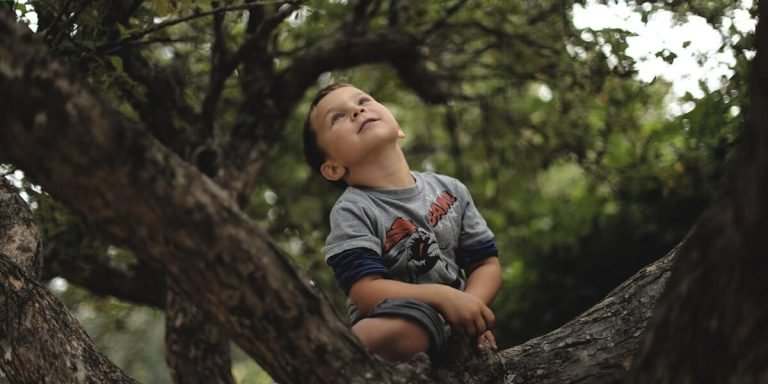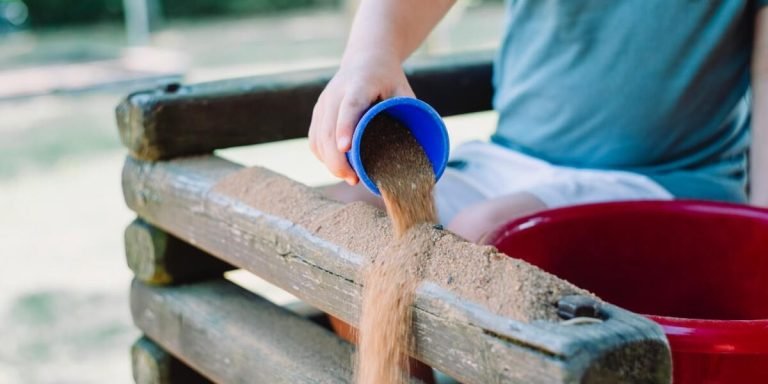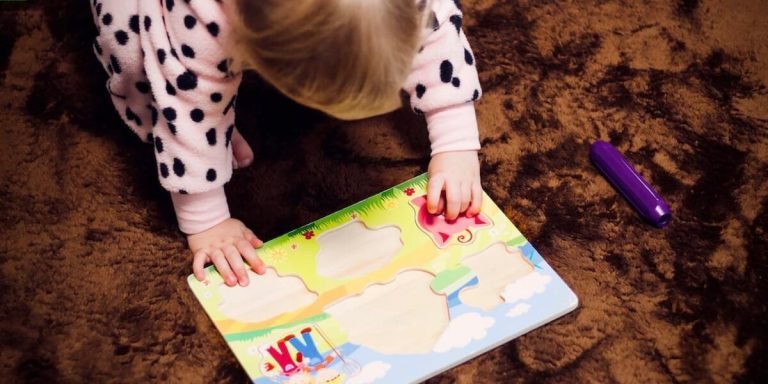Kind Care: Nurturing Empathy and Compassion in Early Childhood Education
In the realm of early childhood education, “kind care” is a term and practice that’s gaining significant attention. It revolves around fostering emotional intelligence in children by teaching them empathy and compassion from an early age. Children exposed to kind care not only develop crucial social-emotional skills but also learn inherent respect for others’ feelings.
An integral part of successful human interaction hinges on empathy and compassion – two vital elements shaped during our formative years through effective learning strategies incorporated into early childhood education curriculum. Understanding this importance can guide parents and educators in molding these young minds with kindness at their core, enriching their school experience while providing lifelong benefits.
Did you know?
Did you know that according to research by Harvard University, children as young as 18 months can start showing empathetic behavior and this ability can be honed through guided early education?
The Role of Kind Care in Promoting Early Childhood Development
Kind care plays a pivotal role in promoting early childhood education. It includes fostering an environment of kindness, empathy, and nurturing that helps children discover their unique potential while ensuring they feel safe and secure. In 2023, the emphasis on kind care has become even more prevalent as we recognize how impactful these first few years can be on a child’s lifelong learning journey.
Educators who provide kind care are not only teaching academic skills but also instilling critical social-emotional skills such as conflict resolution, self-regulation, and interpersonal communication. These skill sets lay the foundation for success both inside classroom walls and outside them later in life when kids navigate through personal relationships or future careers.
The provision of this caring atmosphere integrates perfectly within domains like active learning approaches where children learn by doing things themselves – exploring new materials or ideas with guidance from supportive adults around them rather than merely reciting rote information given to them. By valuing each child individually regardless of their abilities or background – every student under kind care is known to develop confidence which promotes lasting cognitive development.
Understanding the Impact of Kind Care on Cognitive Growth
The first years of a child’s life are crucial for their cognitive development. These early experiences, whether at home or in an educational setting, significantly shape the way they perceive and interact with the world around them. This is where ‘kind care’ comes in – it plays an instrumental role in moulding their growth process.
So what does kind care exactly mean? In essence, it encompasses behaviors that nurture children emotionally and cognitively while creating a positive learning environment.
Now let’s delve deeper into its impact on early childhood education:
1) Fosters Emotional Development: One of the critical aspects of kind care involves understanding each child’s unique emotional needs and responding appropriately. It teaches youngsters how to manage emotions effectively—an essential trait as they grow older—to build self-confidence and resilience.
2) Enhances Social Skills: Kindness acts as a building block for social skills—teaching young kids about empathy towards others’ feelings fosters compassion from an early age—a desirable skill promoting harmonious interpersonal relationships throughout adulthood.
3) Encourages Curiosity & Creativity: When educators practice kindness by giving room for questions without any judgement —the inherent curiosity within children flourishes leading toward innovative thinking pathways; hence expanding horizons beyond textbook knowledge.
4) Promotes Cognitive Development: Through warmth, supportiveness & responsiveness teachers can create rich linguistic environments encouraging language development—one vital part fostering cognitive abilities during these formative years.
Emotional and Social Benefits of Nurturing Environments in Early Years
A nurturing environment in the early years, often referred to as “kind care,” plays a crucial role in fostering emotional and social development among children. With so much focus on academic readiness and cognitive skills in today’s age, it is all too easy for parents and educators to overlook the importance of these vital areas. Yet they are foundational aspects that set the stage for future learning.
Emotional well-being has direct implications on a child’s ability to concentrate, manage emotions positively and perform optimally at school. Kind care helps foster secure attachments with caregivers, which have been proven essential for developing resilience against stressors later in life. Children who experience kind care learn how their actions can elicit positive responses from others around them helping building empathy – an important skill required throughout life.
Equipping young ones with emotional intelligence lays solid groundwork not only facilitating effectual interpersonal communication but also moulding conscientious community members later down line.
Similarly significant is social development during this period; enabling youngsters forge lasting connections those outside immediate family circle greatly benefits self-esteem sense belonging world large relationships form backbone human interaction making socially adept individuals more likely succeed virtually every aspect society.
Essential Components for Effective Kind Care Programs
In developing potent and successful kind care programs, several elements come into play. The first step towards constructing these nurturing environments for children involves a deep understanding of child psychology today in 2023.
A significant component is the integration of technology into learning modules. Our society has rapidly become reliant on digital tools in every facet of life; therefore, early exposure to beneficial tech can gear kids up for their futures while also supplementing traditional teaching methods. These could range from colorful educational apps that keep young minds engaged, to online reading repositories that spark curiosity or simple video lessons that break down complex concepts.
Moreover, communication plays an equally important role within effective Kind Care Programs. Open dialogues between educators and parents provide shared insights about a child’s progress or concerns which may arise over time. This collaborative approach ensures each party participates actively in shaping the education process tailored specifically around a particular child’s needs.
All these integral pieces contribute largely toward building solid foundations during early childhood education where both intellectual growth and character development are inevitably intertwined at such developmental stages.
Curriculum Models Tailored to Young Learners’ Needs
In the realm of early childhood education, curriculum models that cater to young learners’ needs form an integral part of effective kind care programs. With careful attention and dedication put towards tailoring these curriculums around the individual learning style and rate of each child, it’s possible to foster a healthy educational environment filled with nurturing support.
Firstly, in designing such tailored curriculum models for young children involved in kind care programs, you must acknowledge every unique learner’s developmental level and growth pace. Children are distinct individuals who don’t always adhere to proscribed development timelines; hence our approach also should be flexible and accommodating.
Secondly, incorporate age-appropriate activities into daily schedules because they not only keep things fun but also help improve cognitive skills through play-based learning concepts. It’s important to remember each activity has its purpose – whether enhancing fine motor abilities or promoting linguistic proficiency.
Incorporating Play-Based Learning into Daily Childcare Routines
In recent years, we’ve seen an increased emphasis on incorporating play-based learning into daily childcare routines. The idea behind this methodology is simple yet powerful – allowing children to learn through interactive experiences rather than traditional didactic models.
Play-based learning holds a crucial position in early childhood education and has proven benefits for kind care programs. It encourages the natural curiosity of young learners while shaping their cognitive, social-emotional and physical skills simultaneously.
If you’re looking for ways to introduce play-based strategies in your childcare settings without disrupting daily activities, consider these effective techniques:
1. Create Interactive Zones: Design specific areas within your setting dedicated to different types of play – like a science corner or toy station. These zones provide ample opportunities for explorative discovery.
2. Utilize Outdoor Spaces: Outdoor environments offer numerous possibilities for imaginative interactions that foster learning – planting seeds encouraging knowledge about nature; sandpits enhancing fine motor skills, etc.
3. Introduce Structured Games with Learning Targets: While unstructured free time undoubtedly nurtures independence and creativity in kids, planning some structured game sessions with definite educational targets can be beneficial as well.
4.Combine Play With Lesson Plans: Try integrating elements from lesson plans into games or role-plays wherever possible so that it allows indirect reinforcement via playful means.
5.Encourage Open-ended Activities : Encourage self-directed tasks where there’s no ‘right’ answer but multiple solutions which helps develop problem-solving abilities among youngsters.
Strategies for Enhancing Quality in Kind Care Settings
Developing and maintaining a quality environment in any early childhood education setting is crucial, but implementing such conditions in kind care settings necessitates specific strategies. In 2023, with an increasing acknowledgment of the importance of early child development stages, parents and educators should focus on creating environments that fulfill children’s physical needs while stimulating their brains to foster proper cognitive growth. A big part of this involves providing “kind care,” which emphasizes empathy-based approaches towards nurturing young minds.
To enhance the quality of services offered at these facilities, one effective strategy could involve integrating activities aimed at fostering emotional intelligence into daily routines. This might include games designed to help children understand their feelings or storytelling sessions focusing on characters dealing with various emotions—thereby teaching kids how empathize with others’ experiences. These emotionally intelligent practices can create a healthier social interaction framework for little ones in kind care establishments.
Another winning approach may be incorporating play-oriented learning programs rooted deep within curriculum structures. Little learners are naturally inclined toward experimenting and exploring through playful interactions; therefore using hands-on educational toys or engaging them in age-appropriate problem-solving exercises would serve dual purposes: keeping them entertained whilst boosting mental faculties simultaneously.
Teacher Qualifications and Ongoing Professional Training
Ensuring that the people in charge of our children’s education are qualified and up to date with current teaching practices is paramount. The quality of “kind care” provided can often depend on teacher qualifications and their commitment to ongoing professional training.
To begin, it’s crucial for kind care educators to have a formal education background specializing in early childhood development. Such an understanding plays a critical role in molding young minds and determining how they learn best. In 2023, this involves not only foundational knowledge about cognitive developments but also emotional intelligence competencies necessary for caring environments.
Besides academic credentials, hands-on experience shapes an effective educator as nothing surpasses practical expertise when responding tactfully to unforeseen circumstances involving young learners.
Having state licensures or certifications compatible with your nation’s childcare regulations helps validate teachers’ skills officially. It elevates trust among parents while ensuring adherence to legal requirements designed for protecting child interests effectively.
Taking part regularly in workshops geared toward learning innovating instructional techniques such as modern play-based methods or tech-driven solutions nurtures adaptability amongst staff members; thereby consistently improving service delivery standards at kind care centers dynamically catering younger generations’ evolving needs.
However, beyond initial setup measures comes perhaps more significant responsibility: fostering continual growth through further professional training.
Professional development programs provide perfect avenues enabling professionals keep abreast changes within educational domains mainly due to technological advancements and novel research findings impacting pedagogical strategies significantly today.
Implementing Parental Involvement and Community Engagement Initiatives
Implementing parental involvement and community engagement initiatives is a powerful strategy in enhancing quality kind care settings. Now more than ever, the collaborative effort of parents and communities play an instrumental role that contributes significantly to early childhood education.
To begin with, parental involvement has been shown to boost child development outcomes in numerous studies over recent years. Encouraging this participation involves allowing parents frequent opportunities for interaction within the educational setting of their children. This could be through volunteer work, attending parent-teacher meetings or participating in special school events where they can better understand how learning takes place at home and extend it into real-world situations efficiently using our “kind care” approach.
Next on our list is getting the local community involved actively. Community resources are often untapped gold mines that provide immense enrichment potential beyond just simple fundraising events held once or twice a year at your kind care center. By partnering with local businesses such as museums, art galleries or science centers; we not only enhance learning experiences but also foster strong connections between these establishments and families who might benefit from them outside of school hours too.
A new initiative worth considering may involve inviting skilled members within the local area – artists, gardeners, carpenters even chefs – to share their expertise thereby creating unique hands-on-learning-experiences contributing positively towards improving quality standards prevalent today which we value highly here during 2023!
Conclusion
In the journey of childhood education, kind care serves as a vital road marker guiding young minds towards empathy and compassion. By embedding these values from an early stage, we’re not only raising enlightened individuals but also shaping compassionate future communities.
Navigate through our website to explore more such insights into early childcare education that can be your companion in this significant expedition. There’s plenty to learn about how best you can support these little ones or enrich yourself as an educator – remember there is always room for growth when it comes to nurturing child development!







